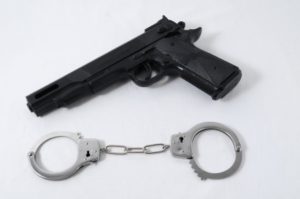 On August 6, 2019, the New Jersey Supreme Court decided the Camden County case of State v. Keith Cuff. A question in addition to the verdict sheet issue concerned the decision to impose consecutive sentences. Specifically, the issue under N.J.S.A. 2C:44-5 was whether re-sentencing was required where the trial court imposed consecutive sentences for unlawful possession of a weapon convictions arising out of the same criminal episode.
On August 6, 2019, the New Jersey Supreme Court decided the Camden County case of State v. Keith Cuff. A question in addition to the verdict sheet issue concerned the decision to impose consecutive sentences. Specifically, the issue under N.J.S.A. 2C:44-5 was whether re-sentencing was required where the trial court imposed consecutive sentences for unlawful possession of a weapon convictions arising out of the same criminal episode.
Justice Patterson wrote for a 5-1 majority of the Court. Justice Solomon did not participate in the decision. The majority held in relevant part:
Defendant was sentenced for nineteen offenses committed in three separate criminal episodes. Ten of those offenses arose from the February 28, 2011 incident in Cherry Hill; six were based on the March 3, 2011 incident in Winslow Township; and two related to the March 29, 2011 incident in Gloucester Township involving the stolen car.
The trial court properly applied the Yarbough factors when it sentenced defendant to terms of incarceration running consecutively to the terms imposed for crimes committed in different criminal episodes. It took into account “the facts relating to the crimes and the following criteria”:
One, the crimes and their objectives were predominantly independent of each other. Two, the crimes involved separate acts of violence or threats of violence. Three, the crimes are committed at different times or separate places, rather than being committed so closely in time and place as to indicate a single period of aberrant behavior. Four, any of the crimes involved multiple victims. And five, the convictions for which the sentences are to be imposed are numerous.
Nothing in Yarbough required additional weight to be applied to the “multiple victims” factor. However, our case law has developed to give this factor more weight than all of the others combined. For example, consecutive sentences are routinely imposed for vehicular assaults involving multiple victims. This occurs even though the assaults are: unintentional, do not involve independent objectives, involve one act of violence, and are committed at the same time and place.
